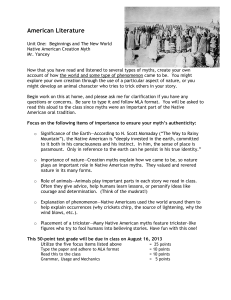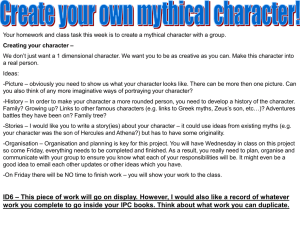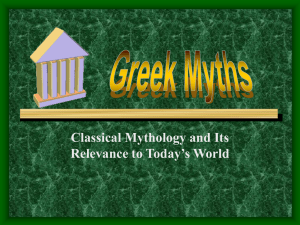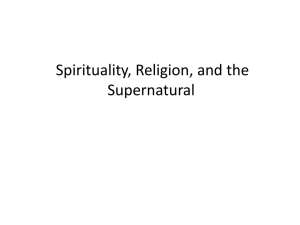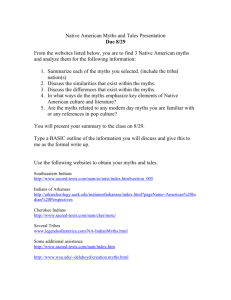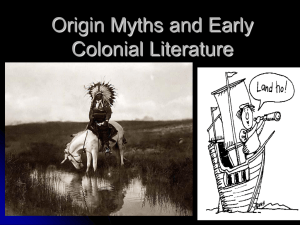Why Study Mythology
advertisement
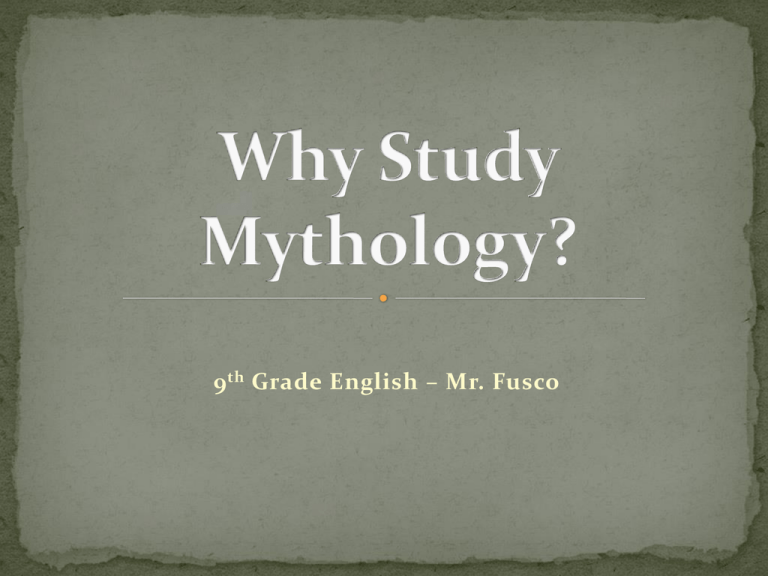
9 th Grade English – Mr. Fusco Mythology: the study of myths. Myth: stories that have been handed down from generation to generation, often verbally, in a given society. Myths are often created in order to try to explain some mystery of nature or of human behavior. Myths began as religious stories, and many of them prominently feature gods and goddesses. Over time they have lost their religious significance, yet they still remain excellent tales. Today we read ancient myths for this quality – storytelling – rather than their religious significance. 1) The myths of a society tell us a lot about its people: their thoughts, beliefs, fears, hopes, and dreams. HISTORY can tell you facts about a society, but MYTH shows you their personality – their thoughts, beliefs, fears, and hopes. Relying only on only HISTORY to tell you about a people is like reading someone's driver's license instead of meeting him or her face-to-face. 2) The myths of a society help form that society’s culture, and helps shape the culture of future societies. CULTURE (noun): the intellectual and artistic ability, and the works produced by it, in a particular society. Myths not only tell us about the thoughts, fears, feelings, and beliefs of the societies that created them – they also, like any type of art, help shape the culture of those who tell the myths. Many of the stories – books, movies, poems, television shows, plays, etc. – that we enjoy today are in some way shaped and informed by the myths of the past, and even some of today’s religions share many of the same stories that appear in ancient myths. As you read myths from ancient civilizations, it also causes you to think of your own culture. What stories are we leaving behind for generations to come? What do we value? What mark are we leaving on an everchanging world?


